Shanghai's new leader Chen Jining's all-out effort to boost economy: Will it work?
After three years of stringent Covid-19 measures, Shanghai is on its road to economic recovery. While the impact of the pandemic was severe, Shanghai officials are making efforts to bring back and reassure foreign enterprises of a conducive business environment. Zaobao correspondent Chen Jing looks at the steps taken by the officials and how effective they are.
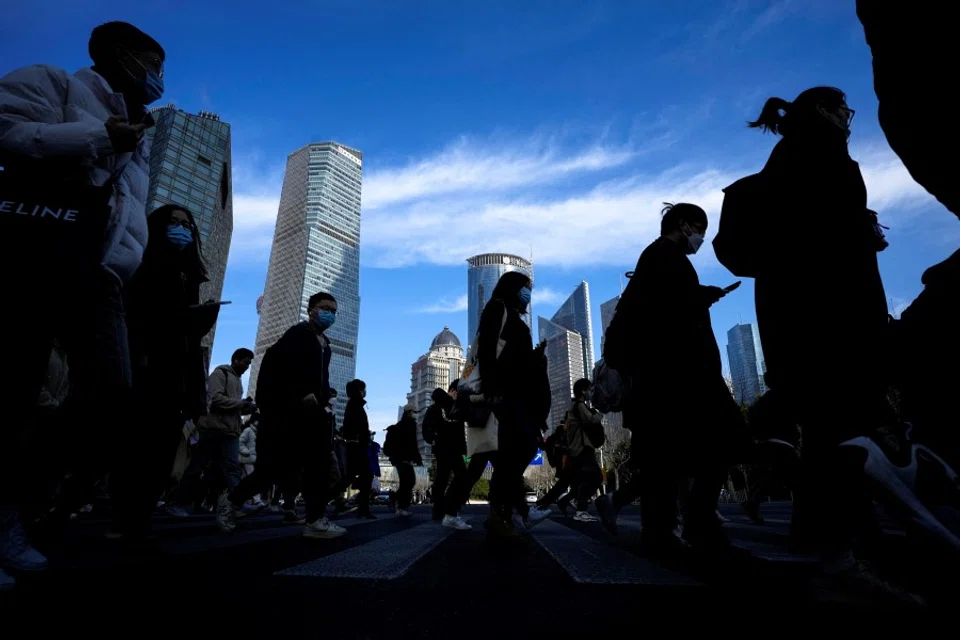
Shanghai party secretary Chen Jining has been hard at work to attract businesses and investments in the new Year of the Rabbit, signalling Shanghai's strong commitment to create an exceptional business environment. Indeed, this highlights the international business hub's eagerness to leave behind the shadow of last year's lockdown.
Meeting international business leaders
Public reports show that on 28 January - the first working day after the Chinese New Year holiday - Chen held a citywide conference on improving the business environment; the same day, Shanghai released a new action plan.
Over the following month, Chen met virtually or in person at least five heads of foreign companies and organisations, including Kering CEO and board chair François-Henri Pinault, PricewaterhouseCoopers global chair Robert E. Moritz, GE HealthCare president and CEO Peter Arduini, International Olympic Committee vice-president Juan Antonio Samaranch Jr, and Wilmar International chair and CEO Kuok Khoon Hong.
Chen Jining's schedule over the past month (Source: Shanghai Fabu 上海发布 official WeChat account)
During these meetings, Chen gave his assurance that Shanghai will create a more market-oriented and internationalised top-tier business environment with an enhanced legal framework, and welcomed companies to increase their cooperation with and investment in Shanghai.
At the same time, Chen also visited state-owned enterprises and private companies in the construction, tourism, internet and innovation sectors, emphasising that Shanghai will keep improving the business environment and provide stronger service support for companies to develop in Shanghai.
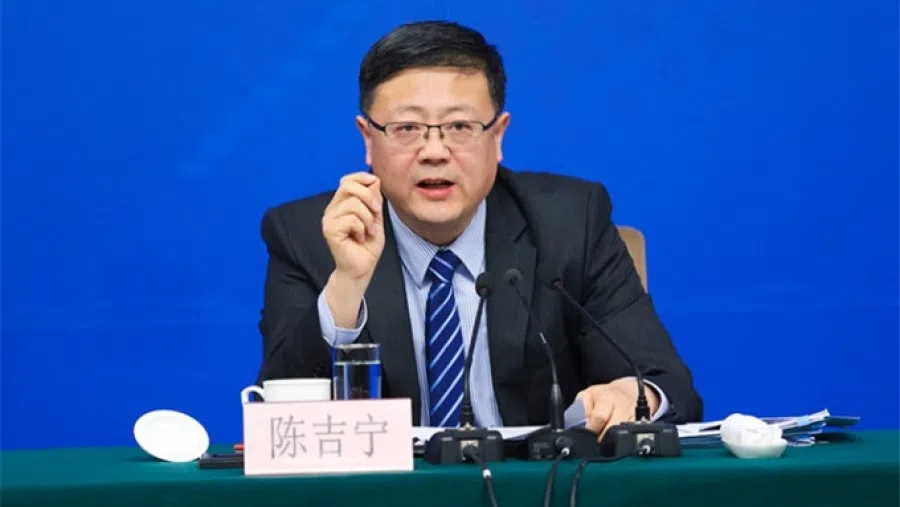
Previously, Chen was mostly involved in municipal events and party meetings. After taking over as Shanghai party secretary in October last year from Li Qiang - who was promoted to the Politburo standing committee - Chen took a month to inspect the various areas in Shanghai. In that time, he also held a video meeting with Estée Lauder Group president and CEO Fabrizio Freda on 4 December, welcoming the company to bring more new global products and innovative businesses to Shanghai.
Making it through the first Covid wave
When Chen assumed his position, he held several Covid-19 planning meetings amid China's zero-Covid policy. Shortly after China removed the policy in late December last year, on 17 January Shanghai authorities announced that they would shift focus to economic development as the city had passed the peak of the first wave of infections. This became Shanghai's urgent priority after last year's heavy economic hit.
The number of regional headquarters for multinational companies in Shanghai also increased by 60 to 891, while foreign investment and research centres increased by 25 to 531.
The two-month lockdown in the second quarter of last year dragged down Shanghai's whole-year GDP by 0.2% year-on-year, making it one of only two provincial-level administrative regions where the economy shrank, the other being Jilin. But according to official figures, Shanghai's actual use of foreign investment for last year went up by 5% to a record US$23.5 billion, bucking the general trend. The number of regional headquarters for multinational companies in Shanghai also increased by 60 to 891, while foreign investment and research centres increased by 25 to 531.
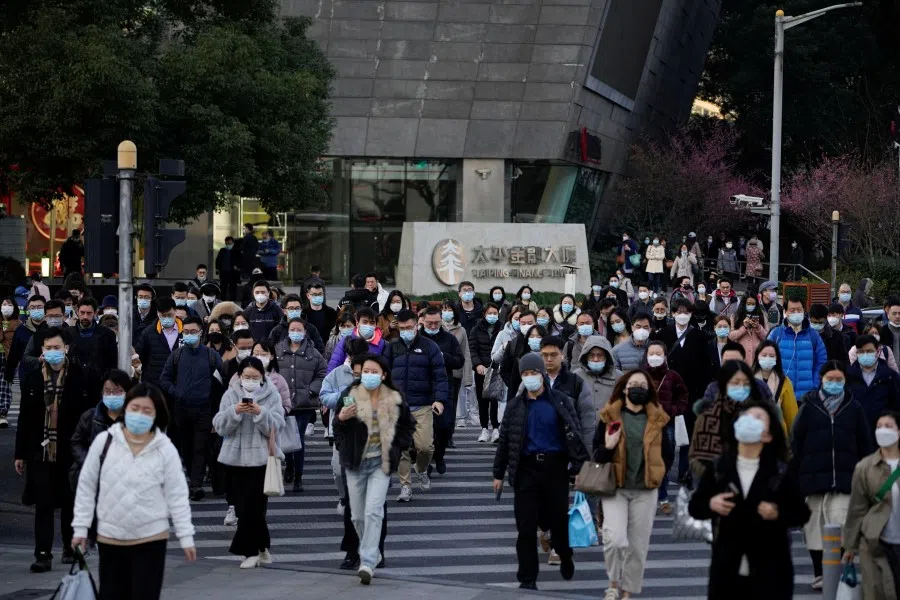
Shanghai mayor Gong Zheng cited the figures above in response to Lianhe Zaobao's queries, to demonstrate that Shanghai is still "one of the most attractive hubs for foreign investments in the world, and one of the top location choices for multinational companies in their global industrial, supply and innovation chains".
However, the Shanghai Position Paper published by the European Union Chamber of Commerce in China in February revealed that 92% of its members reported severe supply chain disruptions as a result of Shanghai's lockdowns and stringent anti-Covid measures last year. At the same time, foreign employees are unwilling to work in Shanghai, while foreign talents are accelerating their departure from the city.
The European Chamber estimates that 25% of the German community has left the city post lockdown, while the number of French and Italian nationals registered with their Shanghai consulates has each decreased by 20%.
... business confidence among the international community in Shanghai has dropped to a record low, with more European companies turning to Singapore to set up regional headquarters instead.
As a result of the disintegration in the business environment and the erratic implementation of local policies, the position paper also pointed out that business confidence among the international community in Shanghai has dropped to a record low, with more European companies turning to Singapore to set up regional headquarters instead. Bettina Schoen-Behanzin, chair of the Shanghai Chapter of the European Chamber, said that "much more remains to be done to restore Shanghai's reputation as a great place to live and conduct business".
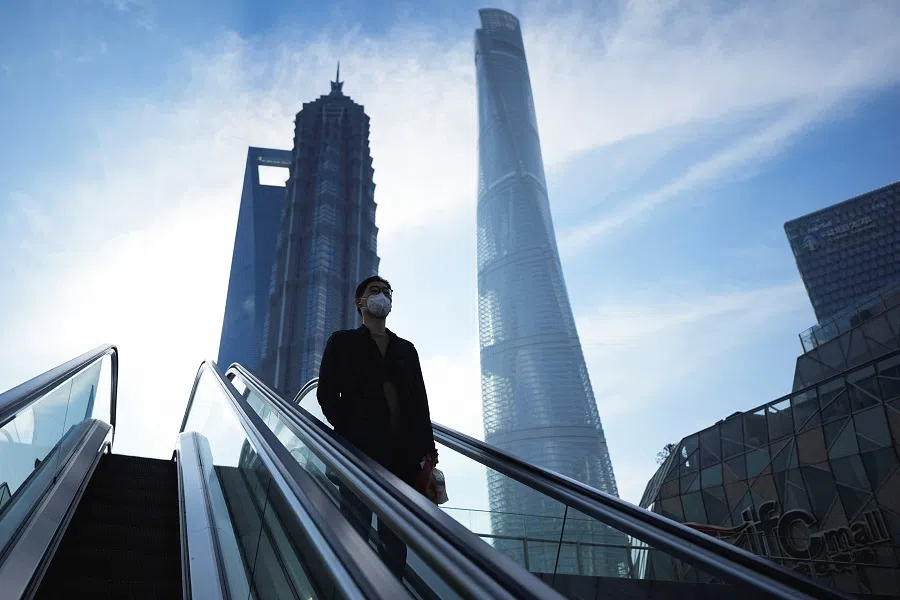
Professor Chen Bo, director of the Optical Valley Institute for Free Trade, told Zaobao that Chen Jining's frequent meetings with foreign enterprises over the past month reflect the importance that the new leadership team has placed on rebuilding Shanghai's business attractiveness and investor confidence. As the impact of the pandemic wanes, Shanghai must urgently set its economy back on track and "recover the lost time and opportunities".
Reassuring policy stability
Chen Bo thinks that Shanghai is doing all it can to reassure global enterprises and investors that official policies are no longer erratic like they were last year. But it will take more than just a few weeks to overcome the negative impacts of the three-year-long Covid-19 measures. More time and effort are needed to restore investor confidence, which will in turn test the perseverance and patience of Chen Jining and his team.
Fifty-nine-year-old Chen Jining is one of the highly educated "expert officials" and former academics with foreign study and work experience to rise through the ranks in recent years. Students and entrepreneurs familiar with Chen consider him a modest and pragmatic person. Chen's predecessor Li Qiang described the former as someone with "a global vision and forward-thinking mindset, a strong sense of reform and innovation and a strong ability to promote development".
Apart from interacting with domestic and foreign enterprises, Chen Jining also hosted a municipal group study session last month where Long Guoqiang, vice-president of the Development Research Center of the State Council, presented a report about increasing openness amid the changing international environment. Chen said during the session that Shanghai needs to broaden its global vision and grasp the opportunities in the changing international economic and trade situation.
... the European Chamber suggests that Shanghai could remove barriers to foreign investments; promote RMB internationalisation; and strengthen the financial support for small- and medium-sized enterprises to drive Shanghai's economic recovery and restore its global appeal.
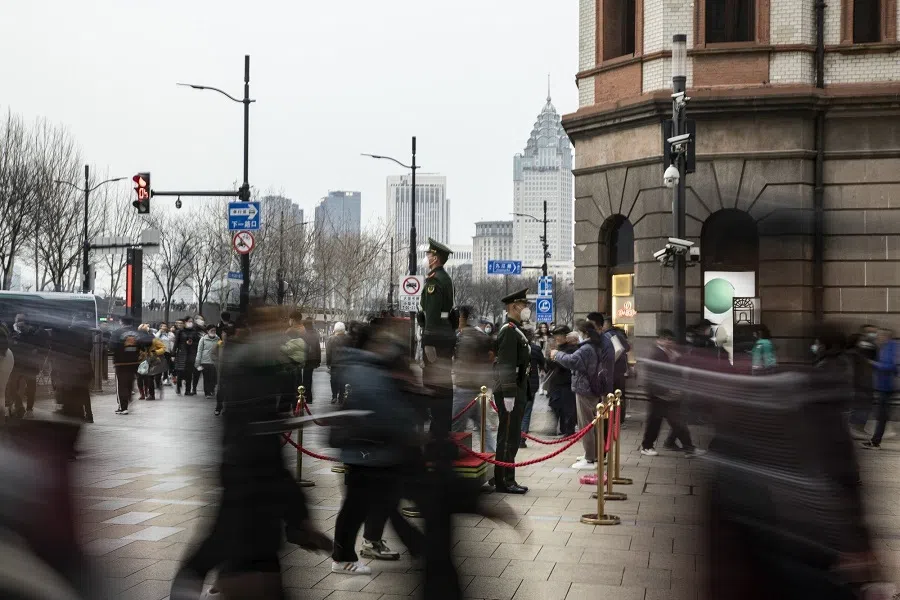
However, as various Chinese regions are ramping up efforts to rebuild the economy, with Guangdong, Zhejiang, Jiangsu and other coastal economic powerhouses sending out trade delegations to fight for orders, Shanghai faces increasingly fierce competition.
Chongqing University economics professor Yao Shujie told Zaobao that Shanghai must make more targeted attempts at attracting investments to reduce homogeneous competition with other provinces and cities.
Yao said that Shanghai could leverage its higher degree of openness than other regions to attract investments, and "consider broadening its focus beyond traditional manufacturing to industries such as high-end services, life and health, and new energy".
Meanwhile, the European Chamber suggests that Shanghai could remove barriers to foreign investments; promote RMB internationalisation; and strengthen the financial support for small- and medium-sized enterprises to drive Shanghai's economic recovery and restore its global appeal.
This article was first published in Lianhe Zaobao as "积极走出去年封城阴影 陈吉宁频见外商重塑上海营商环境".


![[Big read] When the Arctic opens, what happens to Singapore?](https://cassette.sphdigital.com.sg/image/thinkchina/da65edebca34645c711c55e83e9877109b3c53847ebb1305573974651df1d13a)


![[Video] George Yeo: America’s deep pain — and why China won’t colonise](https://cassette.sphdigital.com.sg/image/thinkchina/15083e45d96c12390bdea6af2daf19fd9fcd875aa44a0f92796f34e3dad561cc)